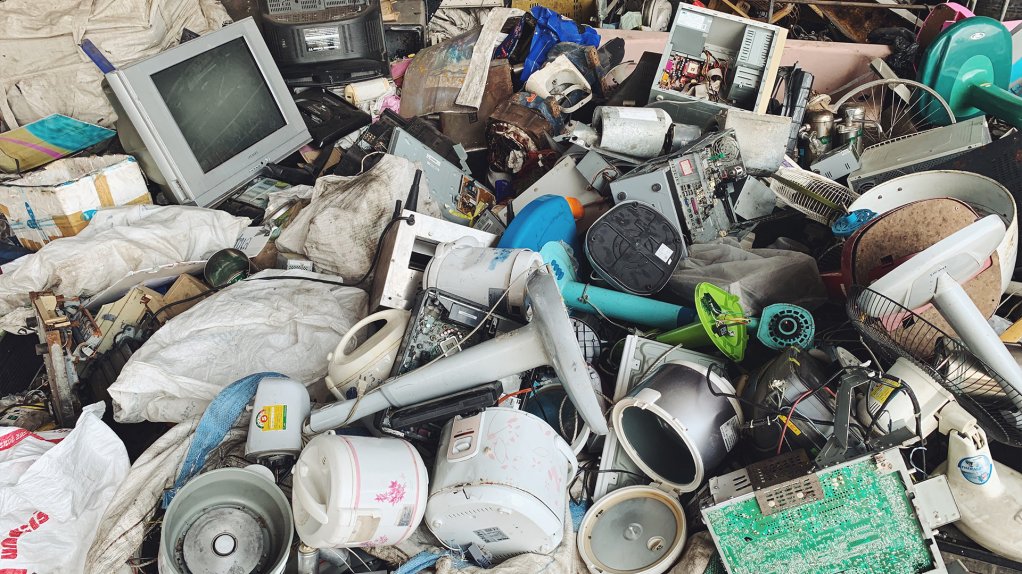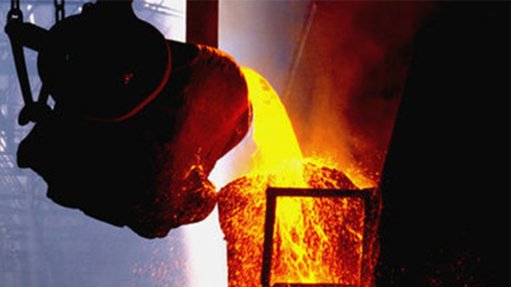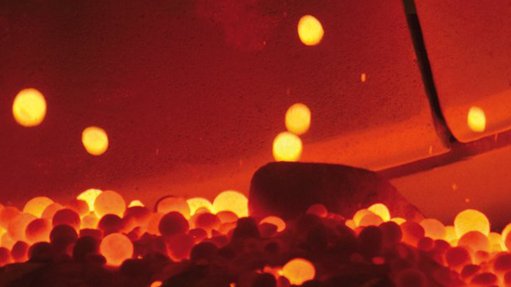Vodacom, Circular Energy tackle ewaste in SA


CIRCULAR ECONOMY Vodacom is supporting a move away from linear consumption patterns – where products are made, used and then discarded – towards a more circular economy
Telecommunications company Vodacom South Africa and not-for-profit producer responsibility organisation Circular Energy have partnered to divert growing volumes of electronic waste (ewaste) from landfills into recovery and recycling programmes.
Ewaste has become one of the fastest- growing waste streams in the world, driven by rising demand for technologies. This discarded waste poses serious pollution, health and environmental risk.
South Africa is one of the highest generators of ewaste across Africa, producing 530-million kilograms a year, equating to nearly eight kilograms per capita, according to the United Nations Global E-Waste Monitor.
“Ewaste is our business’s second most material environmental issue, and encouraging circularity is key to our purpose, which includes empowering people while protecting the planet,” says Vodacom South Africa external affairs director Takalani Netshitenzhe.
Vodacom is supporting a move away from linear consumption patterns – where products are made, used and then discarded – towards a more circular economy, which minimises resource consumption and waste by extending the life cycle of products.
In line with South Africa’s extended producer responsibility regulations for various waste streams to ensure producers take more responsibility for the end-of-life impact of their products, Vodacom’s joint initiative with Circular Energy will ensure a robust system to collect, recycle and reuse waste responsibly across the company’s operations.
In its last financial year, Vodacom recycled over 1 273 t of network equipment.
The telecoms group will work with Circular Energy’s takeback scheme to ensure the responsible collection, recycling and environment-friendly management of Vodacom’s ewaste, as well as other waste, such as batteries, lighting and lighting equipment and packaging.
According to the GSMA, small information technology equipment and electronics constitute around 9% of the total ewaste generated globally.
“Adopting circular models shifts the focus to waste reduction and resource conservation, while creating economic opportunities. It opens pathways to unlock significant value currently lost in traditional ‘linear’ waste processes,” Netshitenzhe explains.
The establishment of critical waste collection systems and recycling infrastructure promotes waste diversion from landfills and supports economic development in South Africa with the emergence of a green economy.
This will create much-needed opportunities for income, green entrepreneurship, jobs and markets for the collection, extraction and recycling of materials.
“Vodacom, through Circular Energy’s initiatives, will realise not only reduced environmental footprints but also substantial economic and skills development benefits within the value chain,” adds Circular Energy CEO Patricia Schröder.
As part of the collaboration with Circular Energy, Vodacom customers can have “pre-loved” devices collected from their homes to be recycled by completing a request form on the producer responsibility organisation’s website.
Article Enquiry
Email Article
Save Article
Feedback
To advertise email advertising@creamermedia.co.za or click here
Announcements
What's On
Subscribe to improve your user experience...
Option 1 (equivalent of R125 a month):
Receive a weekly copy of Creamer Media's Engineering News & Mining Weekly magazine
(print copy for those in South Africa and e-magazine for those outside of South Africa)
Receive daily email newsletters
Access to full search results
Access archive of magazine back copies
Access to Projects in Progress
Access to ONE Research Report of your choice in PDF format
Option 2 (equivalent of R375 a month):
All benefits from Option 1
PLUS
Access to Creamer Media's Research Channel Africa for ALL Research Reports, in PDF format, on various industrial and mining sectors
including Electricity; Water; Energy Transition; Hydrogen; Roads, Rail and Ports; Coal; Gold; Platinum; Battery Metals; etc.
Already a subscriber?
Forgotten your password?
Receive weekly copy of Creamer Media's Engineering News & Mining Weekly magazine (print copy for those in South Africa and e-magazine for those outside of South Africa)
➕
Recieve daily email newsletters
➕
Access to full search results
➕
Access archive of magazine back copies
➕
Access to Projects in Progress
➕
Access to ONE Research Report of your choice in PDF format
RESEARCH CHANNEL AFRICA
R4500 (equivalent of R375 a month)
SUBSCRIBEAll benefits from Option 1
➕
Access to Creamer Media's Research Channel Africa for ALL Research Reports on various industrial and mining sectors, in PDF format, including on:
Electricity
➕
Water
➕
Energy Transition
➕
Hydrogen
➕
Roads, Rail and Ports
➕
Coal
➕
Gold
➕
Platinum
➕
Battery Metals
➕
etc.
Receive all benefits from Option 1 or Option 2 delivered to numerous people at your company
➕
Multiple User names and Passwords for simultaneous log-ins
➕
Intranet integration access to all in your organisation



















